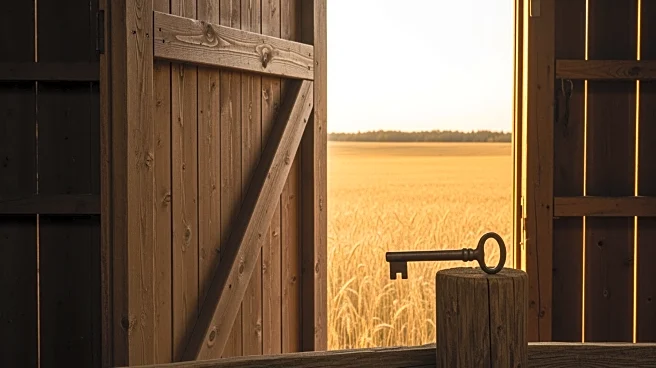What's Happening?
Canadian farmers are calling for reforms to the country's succession tax laws to ensure the survival of family-run farms. The current tax framework, particularly Section 73(3) of the Income Tax Act, is
seen as outdated and poses a risk to the continuity of family farms. With the average age of farmers now at 56 and fewer successors under 40, there is concern that large corporations or foreign entities may acquire significant portions of farmland. Advocates argue that modern families differ from past generations, often having fewer children or children pursuing different careers, leaving nieces and nephews to manage farms. Experts estimate that over $50 billion worth of farmland will change hands in the next decade, highlighting the urgency for legislative updates to protect local farming families and preserve Canadian agricultural traditions.
Why It's Important?
The push for succession tax reform is crucial for maintaining the integrity and sustainability of Canadian agriculture. Without these changes, family farms may be lost to corporate or foreign ownership, which could alter the agricultural landscape and diminish opportunities for local farmers. This shift could impact rural economies and national food security, as family-run farms play a vital role in supporting local communities and preserving Canadian ownership of farmland. The proposed reforms aim to reflect Canadian values by providing committed heirs a fair chance to continue farming traditions, thereby supporting community stability and economic resilience.











